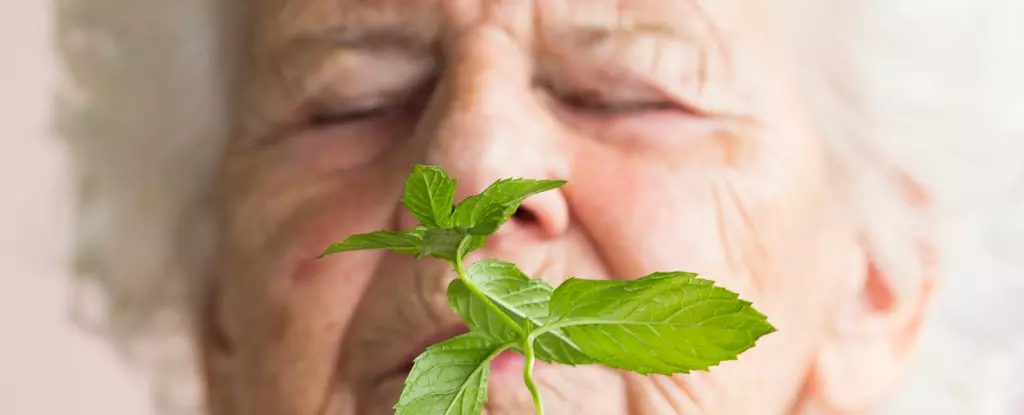Recent scientific research has yielded intriguing insights into the intersection of the olfactory system and cognitive health, particularly in relation to Alzheimer’s disease. A groundbreaking study involving the inhalation of menthol by mice with Alzheimer’s has unveiled potential avenues for therapeutic approaches that pivot on our olfactory senses. While it has long been acknowledged that scents can evoke memories and emotions, this study suggests that specific compounds can also modulate cognitive abilities, revealing an untapped reservoir of possibilities in the field of neuroprotection.
Menthol: A Surprising Ally Against Cognitive Decline
The central finding of the study—conducted by a team led by immunologist Juan José Lasarte—was that mice employing menthol had significant improvements in cognitive function. Perhaps surprisingly, this benefit extended even to healthy young mice, suggesting that menthol’s properties could be harnessed far beyond merely addressing neurodegenerative conditions. It was observed that menthol inhalation led to a decrease in interleukin-1-beta (IL-1β) protein levels, a biomarker intimately tied to the brain’s inflammatory response. The reduction of such inflammatory markers hints at a broader mechanism by which external stimuli can safeguard against cognitive decline, terrestrializing an age-old query regarding scent and its effects on memory and cognition.
The Science Behind Scent and Inflammation
While the effects of menthol are captivating, they also harbinger an essential discussion about the role of inflammation in cognitive decline. Inflammation, when unchecked, can wreak havoc on neural pathways and cellular function, leading to deterioration associated with Alzheimer’s and similar diseases. The study showcases how menthol may serve as a dual agent: not only preventing cognitive decline but also regulating inflammatory responses at a cellular level. The implications of this research extend far beyond mere curiosity; they unveil a new frontier in therapeutic options, where simple inhalation could potentially become an adjunct therapy for the management of cognitive disorders.
Pathways to Future Research and Application
As researchers begin to delineate the connections between scent, immune regulation, and cognitive function, the door opens to manifold futuristic applications—from fragrance formulations designed for therapeutic use to further investigation into other odors that might yield similar benefits. The study indicates that the menthol-induced decrease in IL-1β may also be enhanced by manipulating regulatory T-cells, which play a vital role in maintaining immune homeostasis. If scientists can better understand these biochemical relationships, they may develop an arsenal of olfactory tools capable of reinvigorating cognitive function.
However, the journey from animal studies to human application is fraught with complexities. While the findings are promising, there remains a significant gap in our understanding of how such interventions would translate into human cognitive enhancement or preservation. This calls for rigorously designed clinical trials that carefully explore olfactory stimuli’s efficacy and safety in humans suffering from or at risk for Alzheimer’s disease.
Connection Between the Senses and Neural Function
The intricate wiring of the human brain is such that our sensory experiences are deeply intertwined with cognitive function. The decline in olfactory acuity often heralds the onset of neurodegenerative diseases, underscoring the potential significance of scent in mental health. This alliance between our sensory perceptions and cognitive states urges a revisitation of traditional treatment modalities, especially as we observe a disconnect between conventional pharmaceutical interventions and the holistic nature of human experience.
In light of the synergies demonstrated between olfactory stimulation and cognitive enhancement, we find a unique opportunity to reimagine mental health interventions. Integrating sensory experiences with therapeutic strategies grants a more nuanced approach to traditional treatment regimens. Future investigations could explore combinations of various scents or even the creation of a “mental enhancement” fragrance that would activate targeted cognitive pathways.
As we stand at the precipice of a new era in cognitive science, the simple act of inhaling a fragrance could potentially morph from a mundane sensory experience into a clinically relevant therapeutic practice. The convergence of smell and mental capacity beckons further exploration, demonstrating that often, the next great discovery in science may lie not in drastic measures, but in the subtle, transformative power of scent.

